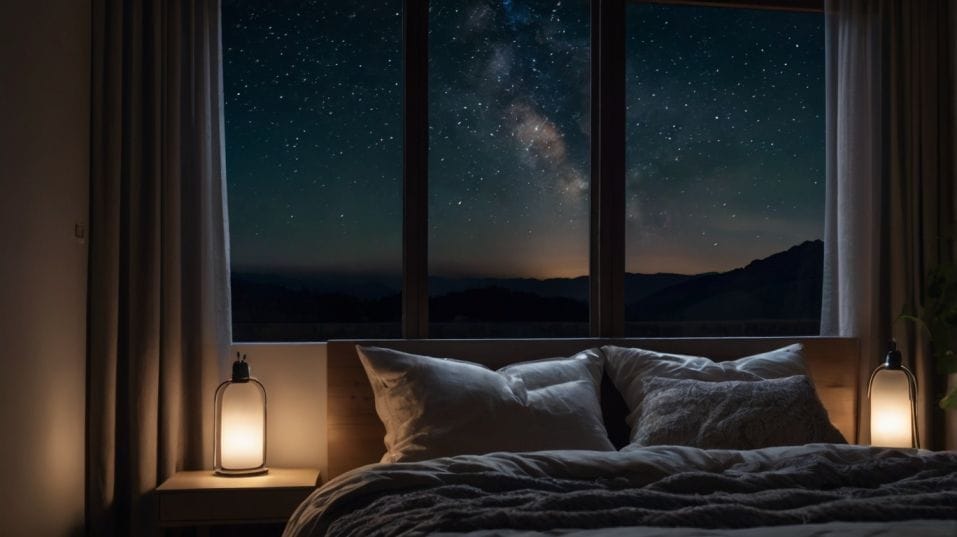What Happens When You Hit Deep Sleep Too Late
Sleeping late and waking up tired? Learn how mistiming deep sleep can drain your energy—and how to fix it with simple, science-backed habits.

Ever wonder why sleeping in after a late night still leaves you groggy? It’s not just about how much sleep you get—it’s when you get it.
Deep sleep, the most powerful stage for recovery and energy, follows a biological schedule your body won’t bend. Miss the window, and you miss the benefits.
Here’s how your timing could be draining your mornings—and what to do tonight to get back on track.
Deep Sleep Is Front-Loaded—And Timing Is Everything
Most people know sleep comes in cycles, but here’s what’s often overlooked: deep sleep—also known as slow-wave sleep—dominates the first half of your night.
That’s when your brain waves slow down, your body starts physical repair, and key hormones (like growth hormone) get released in full force.
Think of deep sleep as your body’s nightly tune-up. Muscles repair, memories lock in, your immune system resets.
You don’t get that repair work at just any time during the night. Your body prioritizes deep sleep early—typically between 10 p.m. and 2 a.m., depending on your rhythm.
When you push your bedtime too far past that window, you don’t just delay sleep—you compress your deep sleep phase. You might still get sleep cycles, but they’re lighter, shorter, and less effective. It’s like trying to refuel a car on a slow drip.

Circadian Rhythm Doesn’t Adjust to Your Late Nights
Your internal clock isn’t as flexible as you’d like it to be. Sure, you can stay up past midnight and sleep in, but your circadian rhythm still runs on a roughly 24-hour cycle, heavily influenced by light exposure.
It expects sleep at night and alertness during the day—and it builds your sleep architecture around that pattern.
Melatonin, the hormone that signals your body to wind down, rises naturally in the evening.
Growth hormone, vital for muscle recovery and fat metabolism, spikes shortly after sleep onset—but only if you’re aligned with your circadian rhythm. Push sleep back, and that hormonal cascade weakens or gets cut short entirely.
This isn’t about becoming a morning person. It’s about aligning sleep onset with your body’s natural rhythm so you can unlock deep sleep at full power.
Why You Feel Off After Sleeping Late
You might sleep from 2 a.m. to 10 a.m. and still wake up groggy. That’s not in your head. It’s biology. Here's what's happening:
Compressed deep sleep
Your body struggles to squeeze in restorative sleep stages late in the night.
Blunted hormone response
Key processes like growth hormone release and tissue repair don’t happen as effectively outside the body’s preferred window.
Circadian misalignment
Even if you’re asleep, your body clock is already shifting toward daytime alertness, so your sleep gets shallower and less restorative.
That “off” feeling isn’t just tiredness—it’s your body not fully resetting.
The Fix: Optimize for When You Sleep, Not Just How Long
Good news: you don’t need to overhaul your life or sleep nine hours a night to fix this. The key is consistency and timing. Here’s how to start shifting into deep sleep when it counts—without becoming a sleep monk.
Dial in your bedtime
Pick a realistic, repeatable sleep time that allows you to fall asleep between 10 p.m. and midnight. Earlier is better for deep sleep, but consistency matters more than perfection.
Create a reliable wind-down cue
Your brain doesn’t slam on the brakes. It needs a runway. Shut down screens 30–60 minutes before bed. Dim the lights.
Do something analog—read, journal, stretch. Repetition trains your brain to anticipate sleep, which helps you fall into deeper stages faster.
Anchor your wake time
Your body loves predictable wake-ups. Even on weekends, try to get up within an hour of your usual time. That builds a strong circadian rhythm, which pays off with deeper sleep and easier mornings.
Get early light exposure
Step outside within an hour of waking. Natural light anchors your circadian rhythm and reinforces the timing of your next sleep cycle. It’s simple, but massively effective.
Avoid sleep disruptors late at night
Caffeine, alcohol, heavy meals, and bright screens all delay deep sleep. Cut them off earlier in the evening to give your body a cleaner runway to land solid sleep.
Real Gains You’ll Feel
Once your sleep timing lines up, you’ll start noticing benefits that ripple into every part of your day:
- More morning energy without needing three coffees
- Sharper focus that lasts longer into the afternoon
- Faster recovery from workouts or long workdays
- Improved mood stability—less irritable, more clear-headed
- Better immune function, because your body’s had time to recharge
This isn’t about rigid schedules or becoming some high-performance machine. It’s about making your biology work for you—not against you.
Final Thoughts
When you hit deep sleep too late, you don’t just mess with your bedtime—you lose the most powerful stage of the night. But with small, smart changes to your sleep timing, you can unlock the kind of rest that actually fuels your body and mind.
So don’t wait for the perfect moment to fix your sleep. Start tonight. Pick a consistent bedtime. Shut things down early. Let deep sleep do what it’s built to do. Sleep smarter, not harder—and watch everything else get easier.




